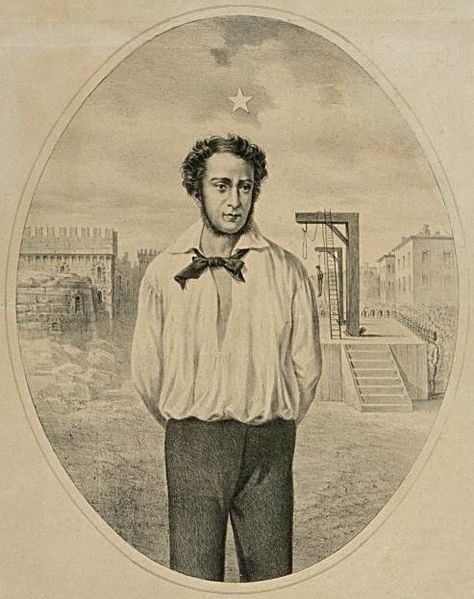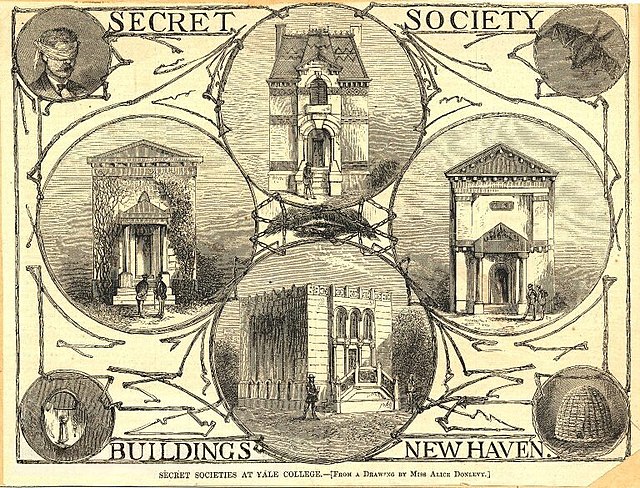The Carbonari was an informal network of secret revolutionary societies active in Italy from about 1800 to 1831. The Italian Carbonari may have further influenced other revolutionary groups in France, Portugal, Spain, Brazil, Uruguay, the Ottoman Empire, and Russia. Although their goals often had a patriotic and liberal basis, they lacked a clear immediate political agenda. They were a focus for those unhappy with the repressive political situation in Italy following 1815, especially in the south of the Italian Peninsula. Members of the Carbonari, and those influenced by them, took part in important events in the process of Italian unification, especially the failed Revolution of 1820, and in the further development of Italian nationalism. The chief purpose was to defeat tyranny and establish a constitutional government. In the north of Italy other groups, such as the Adelfia and the Filadelfia, were associate organizations.
Revolution of 1820 in Palermo against King Ferdinand I
Ciro Menotti, leader of the failed uprising against Austrian dominance in Modena, was executed in 1831
Plaque in memory of Angelo Targhini and Leonida Montanari, sentenced to death by the Pope in 1825
Arrest of Silvio Pellico and Piero Maroncelli by Austrian authorities in Milan in 1820
A secret society is an organization about which the activities, events, inner functioning, or membership are concealed. The society may or may not attempt to conceal its existence. The term usually excludes covert groups, such as intelligence agencies or guerrilla warfare insurgencies, that hide their activities and memberships but maintain a public presence.
"Secret Society Buildings at Yale College" by Alice Donlevy c. 1880. Pictured are: Psi Upsilon (Beta chapter), 120 High Street. Left center: Skull and Bones (Russell Trust Association), 64 High Street. Right center: Delta Kappa Epsilon (Phi chapter), east side of York Street, south of Elm Street. Bottom: Scroll and Key (Kingsley Trust SSS Nonse Association), 490 College Street.
The Brethren of Sincerity) were a secret society of Muslim philosophers in Basra, Iraq, in the 9th or 10th century CE.
A Hongmen seal, 19th century







